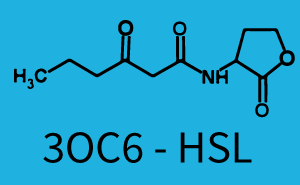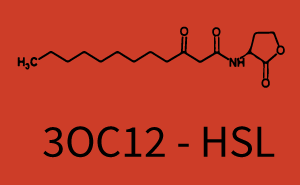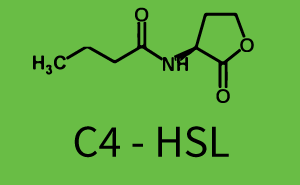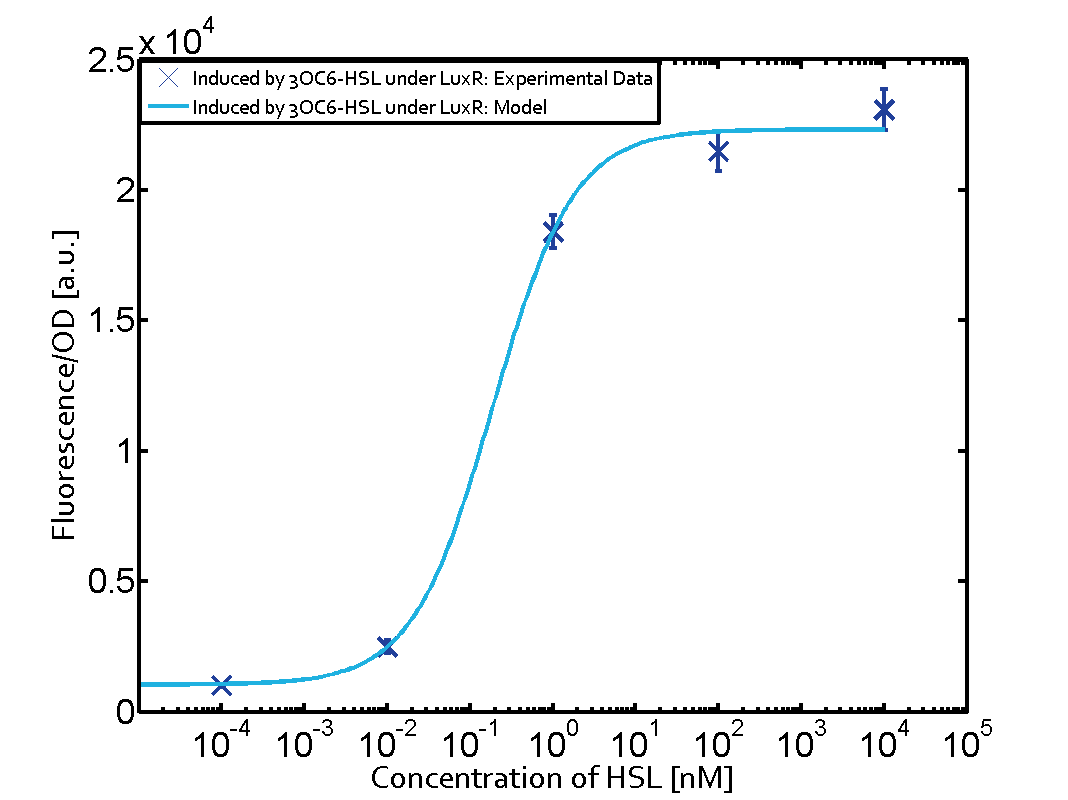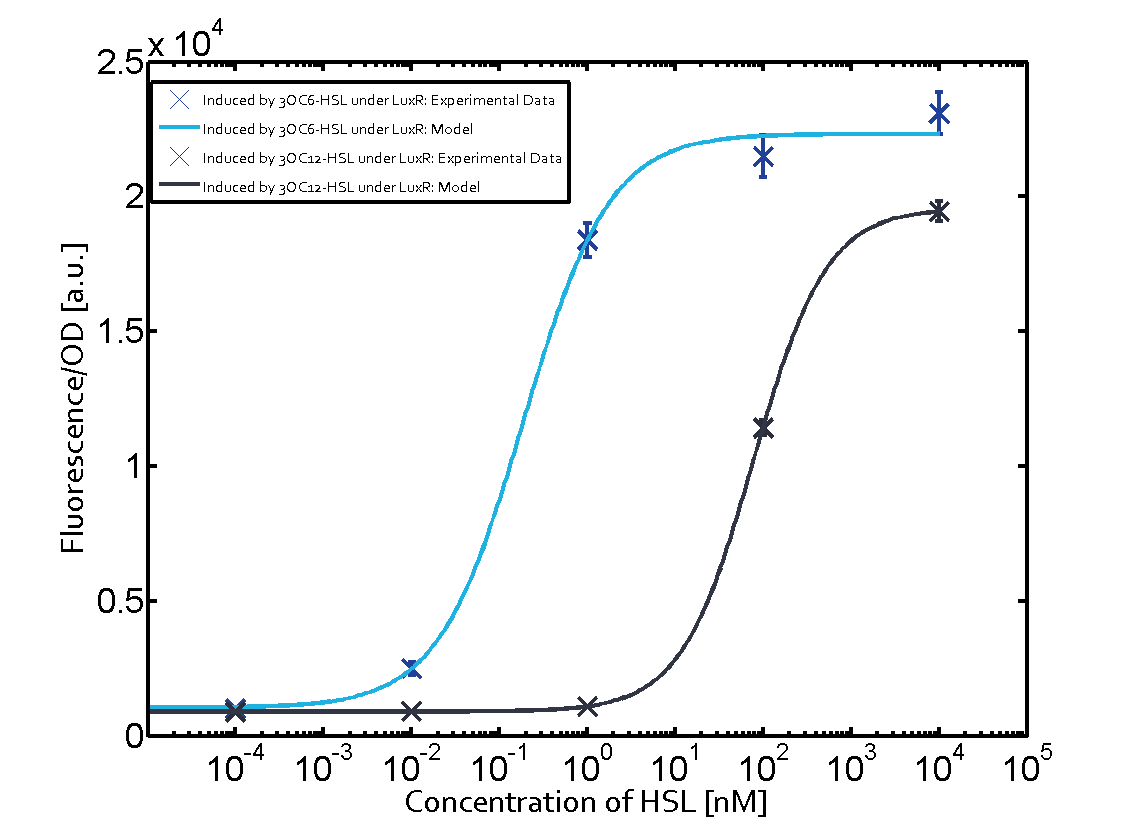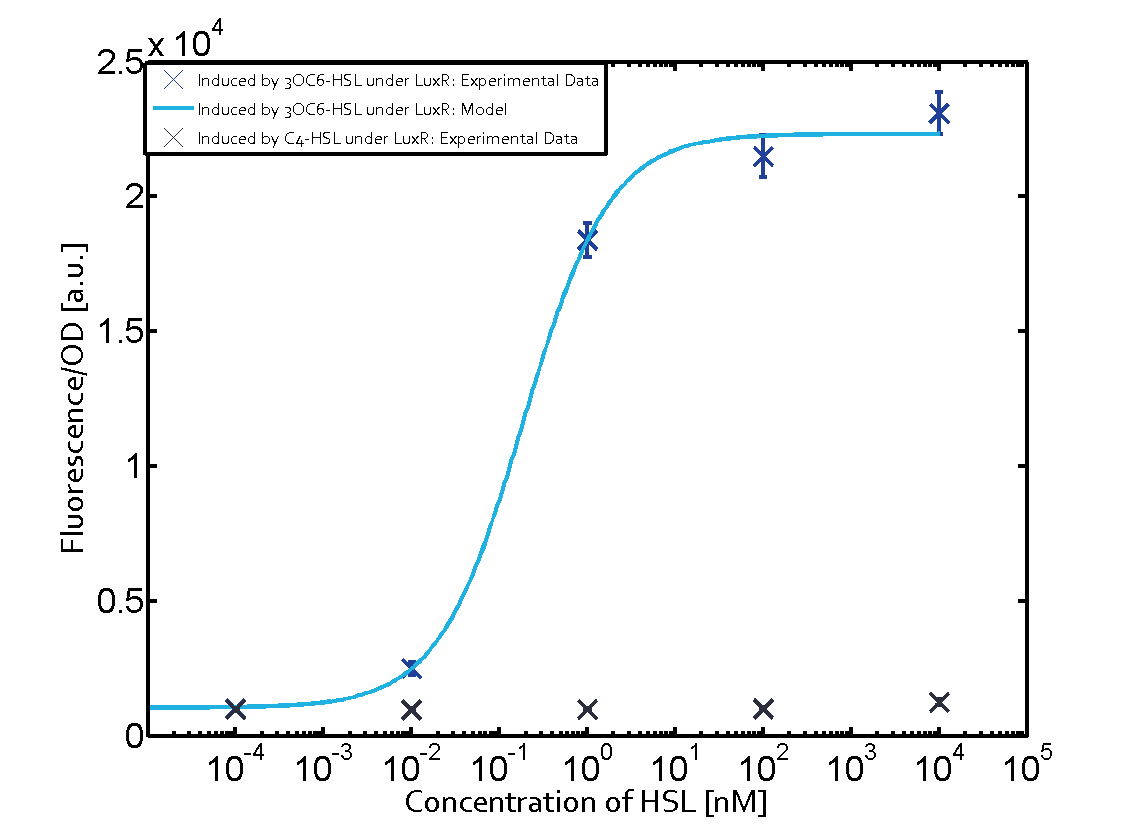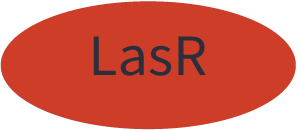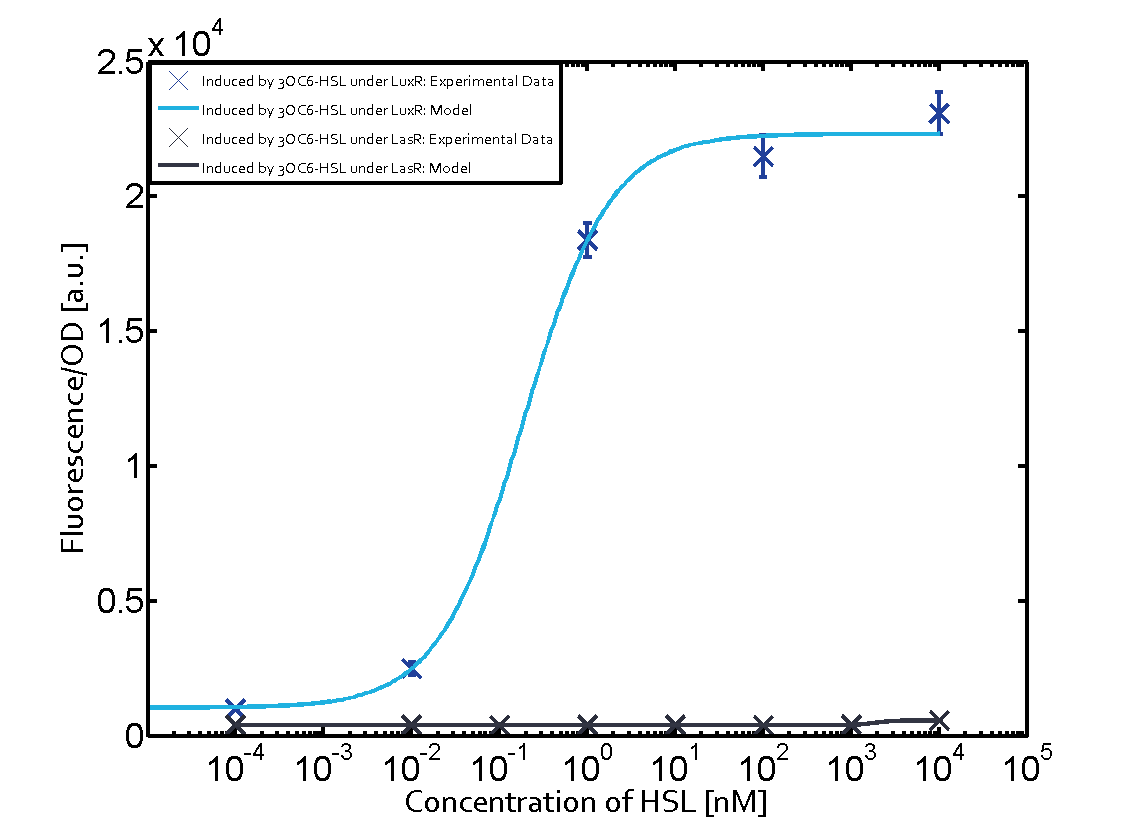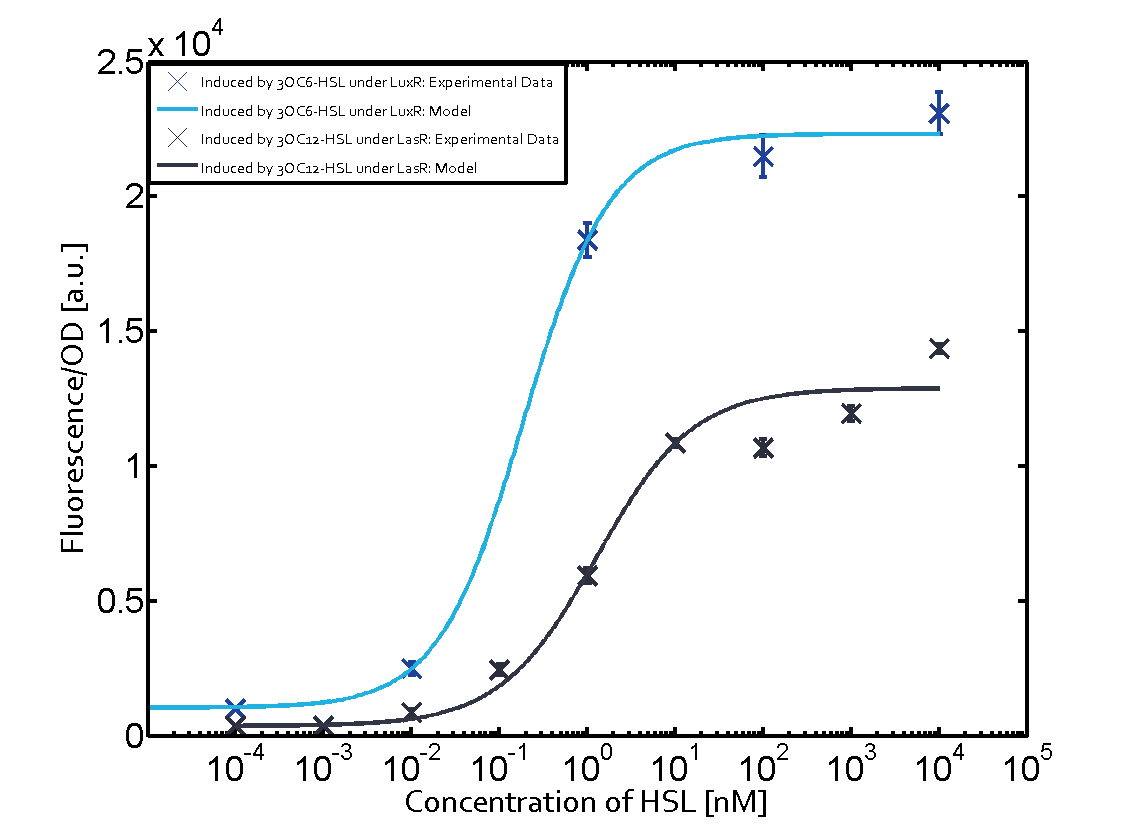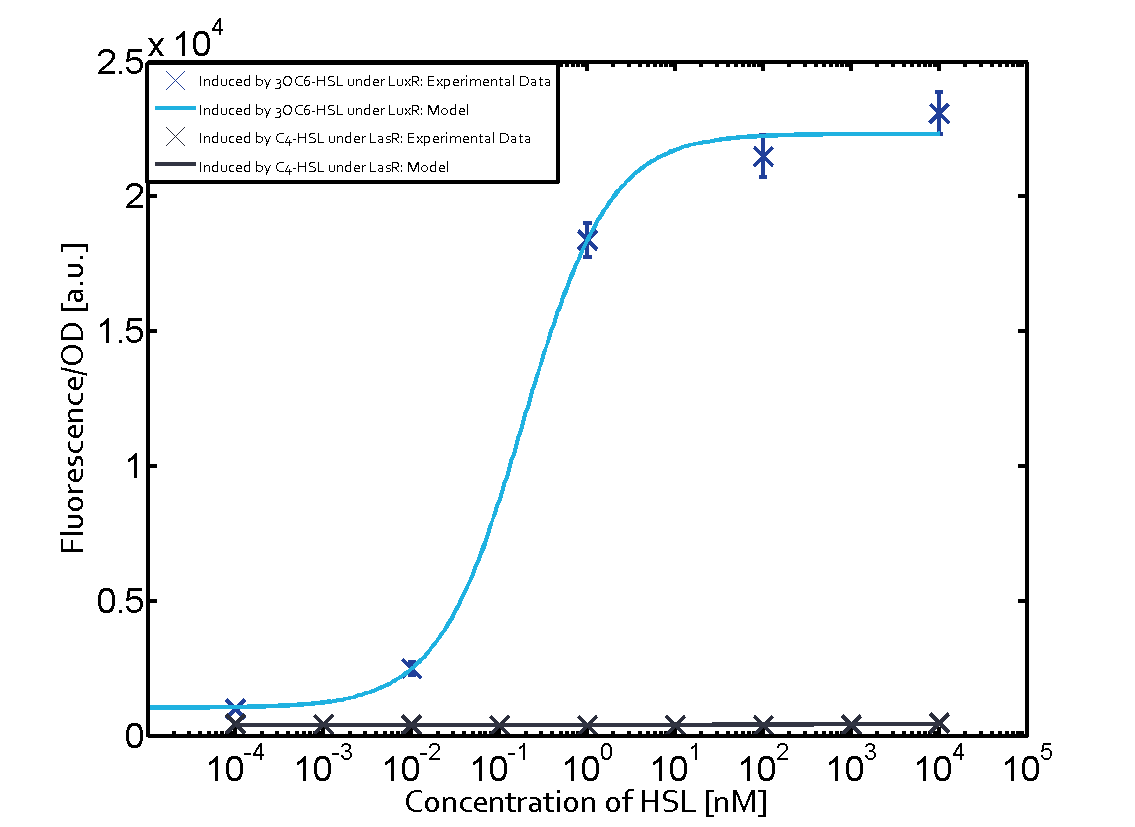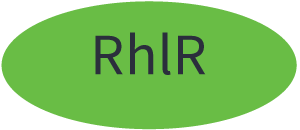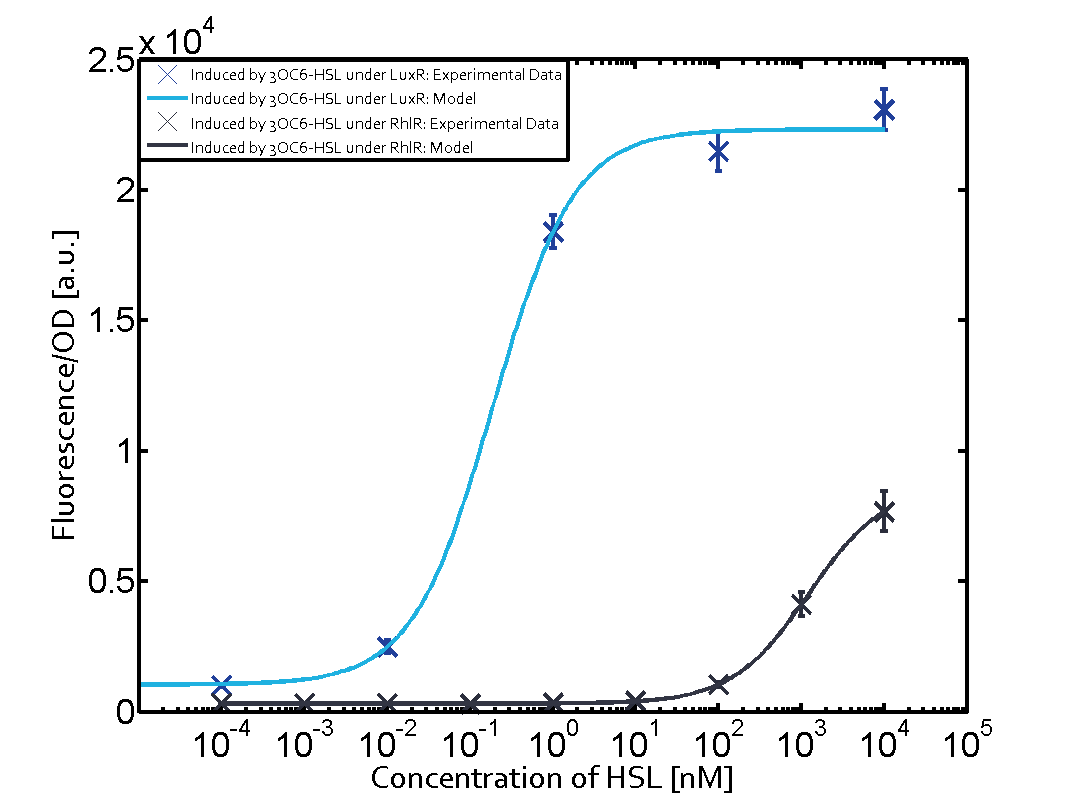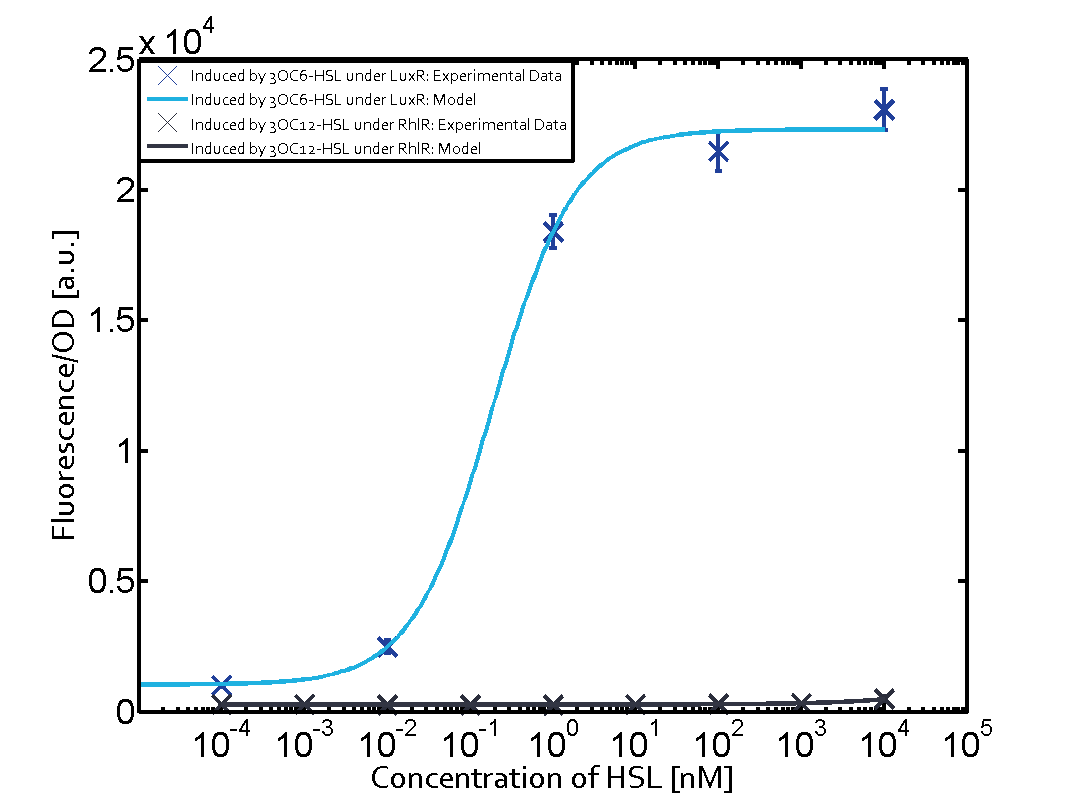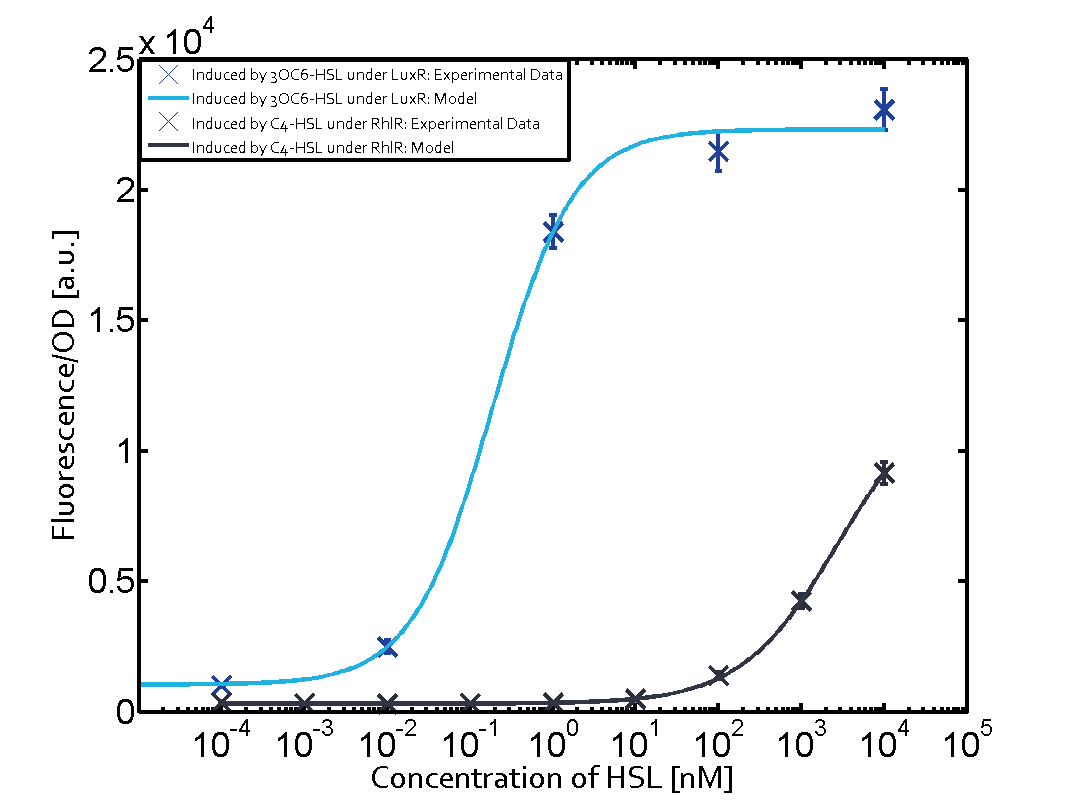Team:ETH Zurich/expresults/qs/tab-plux
From 2014.igem.org
(Difference between revisions)
| Line 1: | Line 1: | ||
{|class="wikitable" style="background-color: white; text-align:center; width:auto; margin: auto;" | {|class="wikitable" style="background-color: white; text-align:center; width:auto; margin: auto;" | ||
| - | |+'''Table 1''' Crosstalk matrix for the promoter | + | |+'''Table 1''' Crosstalk matrix for the promoter pLux ([http://parts.igem.org/Part:BBa_R0062:Experience BBa_R0062]) |
| - | |colspan="4" style='font-size:10pt';text-align:left|In all the measurements conducted to create this matrix the promoter pLux was the basis and was induced in six different variations shown. | + | |colspan="4" style='font-size:10pt';text-align:left| |
| - | The dark blue points in the graph top left show the activation of gene expression when pLux is induced by 3OC6-HSL (Lux-AHL) binding to the corresponding LuxR regulator. The observed transition occurs at a concentration of approximately 1 nM 3OC6-HSL. The light-blue curve plotted shows modeling data of pLux induced by 3OC6-HSL (Lux-AHL) binding to the corresponding LuxR regulator. This curve from the model and the dark blue data | + | In all the measurements conducted to create this matrix the promoter pLux (ref registry same as above) was the basis and was induced in six different variations shown. |
| - | Additionally for 3OC12-HSL binding to its corresponding regulator LasR and then binding to the pLux as seen in the middle of the top row and center of the matrix. For the case of Las-AHL binding the LasR and subsequently the promoter pLux, the transition occurs at 1 nM and reaches 0.5 fold the fluorescence as pLux induced by 3OC6-HSL binding LuxR. In the case of 3OC12-HSL binding LuxR and inducing the promoter pLux, the transition is observed at approximately 100 nM and severe crosstalk is observed | + | The dark blue points in the graph top left show the activation of gene expression when pLux is induced by 3OC6-HSL (Lux-AHL) binding to the corresponding LuxR regulator. The observed transition occurs at a concentration of approximately 1 nM of 3OC6-HSL. The light-blue curve plotted shows modeling data of pLux induced by 3OC6-HSL (Lux-AHL) binding to the corresponding LuxR regulator (link to registry). This curve from the model and the dark blue data points obtained from experiments were plotted as a reference in all the other graphs describing pLux(ref registry). Crosstalk can be observed for the cases where the 3OC12-HSL (Las-AHL) binds the LuxR (link to registry)regulator. |
| - | + | Additionally for 3OC12-HSL binding to its corresponding regulator LasR and then binding to the pLux as seen in the middle of the top row and center of the matrix. | |
| + | For the case of Las-AHL binding the LasR (ref)and subsequently the promoter pLux(ref), the transition occurs at 1 nM and reaches 0.5 fold the fluorescence as pLux (ref) induced by 3OC6-HSL binding LuxR. In the case of 3OC12-HSL binding LuxR and inducing the promoter pLux, the transition is observed at approximately 100 nM and severe crosstalk is observed, meaning that the ON-OFF-ratio is not significantly different from the reference curve. | ||
| + | |||
| + | Observation of C4-HSL has shown, that there is no significant crosstalk with the LuxR and LasR regulators binding C4-HSL and subsequently to pLux. This is indicated on top right and middle right graphs. However, RhlR induced with its corresponding inducer (C4-HSL) binds to pLux (ref) and activates expression of GFP at about 100 nM. | ||
|- | |- | ||
|style="width:200px"|[[File:ETH_Zurich_2014_qs-table_CornerLux.png|200px|link=http://parts.igem.org/Part:BBa_C0062:Experience]] | |style="width:200px"|[[File:ETH_Zurich_2014_qs-table_CornerLux.png|200px|link=http://parts.igem.org/Part:BBa_C0062:Experience]] | ||
 "
"

